Here’s an up-to-date list of all NFL Players from Liberty High School in Henderson, Nevada.
The list includes only those players who have played in an NFL game.
See where it ranks among other schools in the state here.


The Milan-Cortina 2026 Winter Olympics opened Friday with a glittering ceremony at the San Siro stadium featuring US pop diva Mariah Carey, Italian tenor Andrea Bocelli and Chinese pianist Lang Lang among other performers. It was accompanied by celebrations at Games venues across the Italian Alps in an unprecedented four-site, dual-cauldron opening ceremony. Morgan Ayre and Jean Barrère take a closer look.


UFC bantamweights are front and center. The four highest-ranked bantamweights all recently competed in major fights. On Saturday, Mario Bautista and Vinicius Oliveira step into the spotlight.
People are starting to wake up to the skill of Bautista (16-3). The Arizona native had won eight fights in a row since 2022 before getting a step up opportunity against top contender Umar Nurmagomedov. While he was swept on the scorecards, Bautista put up a strong effort in defeat. Bautista stunned Nurmagomedov with a knee and nearly yanked his foot off with a toehold. His strong showing, plus a dominant win over former Bellator bantamweight champion Patchy Mix, helped mend fan feelings after his contentious win over the great Jose Aldo.
“I thought I blew the [Nurmagomedov] fight. That’s the mindset I had,” Bautista told CBS Sports. “Being around people saying, ‘That was an awesome fight. You actually went out there and fought him. You didn’t hold anything back.’ I’m glad people saw that from me. I think that’s what landed me this main event.”
On Saturday, Bautista can utilize his wealth of experience against a fighter with a rapidly rising profile.
Sign up for Paramount+ and Watch UFC Fight Night: Bautista vs. Oliveira for no additional fee — every UFC numbered event and UFC Fight Night is included with your subscription! Plans start as low as $8.99/month or $89.99/year!
“His hand placements,” Bautista said of Oliveira’s technical gaps. “Outside of the UFC, I saw three separate videos of him getting knocked out. He lives and dies by the sword. I think there’s a higher possibility for that to happen the higher you climb up the UFC rankings.
Oliveira (23-3) is a madman. He marches forward with his hands down and strikes from odd angles. Oliveira is already calling out elite stars like Nurmagomedov, Sean O’Malley and Merab Dvalishvili only four fights into his UFC career. “Lok Dog” won’t be far from those conversations if he makes good on his first-round knockout prediction.
“No one in the top five wants to fight me. They’re all close to fighting for the belt. If UFC asked them to fight ‘Lok Dog,’ they’d say no…” Oliveira told CBS Sports. “They don’t want to fight me because they have many things to lose.
“I’m dangerous in this division. When you see me fight, you can see I’m crazy. I move forward with my hands down. I dodge stuff and throw punches from nowhere. I’m not technical or orthodox. It’s strange to fight me. If I were someone in front of me, I’d run away. I wouldn’t want to face me.”
Saturday’s co-main event has important implications for the flyweight division. Kyoji Horiguchi, who enjoyed four title reigns between Rizin and Bellator, has the second fight of his second UFC stint. To date, Demetrious “Mighty Mouse” Johnson is the only flyweight to beat Horiguchi. The Japanese star could make a serious splash in the title conversation by beating Amir Albazi. Once considered a future title contender, significant health issues have stunted Albazi’s career. Heart and neck surgery are among the serious procedures that Albazi underwent over the last few years.
Plus, grappling expert Jailton Almeida is back in a heavyweight bout with Rizvan Kuniev in a featured slot. Almeida, 34, debuted in 2022 after earning a contract on Dana White’s Contender Series. He ripped off six straight wins, including a strong decision over former title challenger Derrick Lewis in 2023. After a setback against Curtis Blaydes by knockout in 2024, Almeida bounced back with a pair of finishes against Alexander Romanov and Serghei Spivac.
Let’s take a look at the rest of the fight card with the latest odds from DraftKings before getting to a prediction and expert pick on the main event below.
Odds via DraftKings Sportsbook
|
Mario Bautista -170 |
Vinicius Oliveira +142 |
Bantamweight |
|
Kyoji Horiguchi -375 |
Amir Albazi +295 |
Flyweight |
|
Jailton Almeida -155 |
Rizvan Kuniev +130 |
Heavyweight |
| Michal Oleksiejczuk -500 | Marc-Andre Barriault +380 | Middleweight |
| Farid Basharat -285 | Jean Matsumoto +230 | Bantamweight |
| Dustin Jacoby -185 | Julius Walker +154 | Light heavyweight |
Date: Saturday, Feb. 7 | Start time: 8 p.m. ET
Location: Meta APEX — Las Vegas
Stream: Paramount+ (subscribe now for as little as $8.99 per month)
Mario Bautista vs. Vinicius Oliveira: Oliveira doesn’t seem concerned with Bautista, technique, or much else. You can chalk up his swagger to some combination of confidence and stubbornness. Oliveira was a vicious KO artist on the regional scene. Things haven’t come so easily for him in the UFC. He might not like that, but I do. Oliveira showed that his skills hold up over 15 minutes.
Saturday’s headliners are surprisingly similar considering their contrasting personalities and game plans. They have comparable striking offense and defense stats, though Oliveira sees less artillery coming his way. They’re also difficult to ground. I’m torn here. Bautista’s performance against Nurmagomedov opened my eyes to how good he is. I don’t think he’ll finish Oliveira, and that creates concerns about a potential KO loss over 25 minutes. However, Oliveira’s inexperience against elite fighters and failure to finish his last three opponents are more concerning. I’ll side with the veteran over five rounds. Pick: Bautista via unanimous decision
Who wins Bautista vs. Oliveira, and how exactly does the fight end? Visit SportsLine now to get detailed picks and analysis from the advanced model that showed a 6.1% ROI from over 500 fights from 2023-25, and find out.

 Feb 4, 2026; San Francisco, CA, USA; Seattle Seahawks and New England Patriots at a EA Sports Madden 26 display at the Super Bowl LX media center at the Moscone Center. Mandatory Credit: Kirby Lee-Imagn Images
Feb 4, 2026; San Francisco, CA, USA; Seattle Seahawks and New England Patriots at a EA Sports Madden 26 display at the Super Bowl LX media center at the Moscone Center. Mandatory Credit: Kirby Lee-Imagn Images A last-second 52-yard field goal lifted Drini “Drini” Gjoka to a 30-27 win over Jaylen “Astro” Morrow-Reynolds in the Madden Bowl final on Friday in Redwood City, Calif.
Drini, a McKinney, Texas, resident, joins Henry “Henry” Leverette as the only two-time winners in the 10 editions of the event featuring 1-on-1 competition. Henry was also part of a three-player team that won the Madden Bowl in 2021, when a different format was used.
The latest victory was worth $250,000 and the championship ring. Astro, from Waldorf, Md., pocketed $150,000 as the runner-up.
“This is the biggest win of my life,” Drini said. “I’ve had so many big wins in my life, but this right here tops it all, I’m not going to lie. This feels so good. Like, I’m shaking in my hands. This is insane, man.”
Drini captured his first Madden Bowl crown in 2019, a year after losing in the final. He has been competing in the Madden Championship Series for eight years.
“It’s been seven years since I won my last Madden Bowl, since I won my last belt,” Drini said.
He added that he felt disrespected by those who were overlooking him.
“I’m just here to prove a point that I’m still that guy,” he said.
In the semifinals, Drini got past John “MrFootball88” Britt of San Diego 24-12, and Astro topped seeded David “DavidT” Tampellini of Patchogue, N.Y., 38-29.
Madden Bowl 26 prize pool
1. $250,000 — Drini “Drini” Gjoka
2. $150,000 — Jaylen “Astro” Morrow-Reynolds
3-4. $100,000 — John “MrFootball88” Britt, David “DavidT” Tampellini
5-8. $55,000 — Jonathan “JonBeast” Marquez, “GoatGeezy,” Peyton “Dez” Tuma, Henry “Henry” Leverette
9-14. $30,000 — “Drip,” Christian “No Mercy Lambo” Webb, “Cobo,” “Abram,” Dwayne “Cleff” Wood, “Gabagol”
Madden Bowl championship-round history, with final score and winner’s prize money 2016 — Frank “Stiff” Sardoni Jr. def. Eric “Problem” Wright 37-21; $20,000
2017 — Michael “Skimbo” Skimbo def. Eric “Problem” Wright 24-20; $100,000
2018 — Shay “Young Kiv” Kivlen def. Drini “Drini” Gjoka 28-24; $107,000
2019 — Drini “Drini” Gjoka def. Mike “Spoto” Spoto 41-0; $41,000 2020 — Raidel “Joke” Brito def. Daniel “Dcroft” Mycroft 17-0; $65,000
2021 — (3 vs. 3) Henry “Henry” Leverette/Wesley “Wesley” Gittens/Jack “NBG” Kronstein def. Jacob “Jwall” Wallack/Jacob “Fancy” Worthington/Joshua “DatBoi” Wright 31-3; $150,000
2022 — Henry “Henry” Leverette def. Wesley “Wesley” Gittens 35-31; $250,000
2023 — Peyton “Dez” Tuma def. Henry “Henry” Leverette 24-21; $250,000 2024 — Henry “Henry” Leverette def. Wesley “Wesley” Gittens 35-24; $250,000
2025 — Jacob “Fancy” Worthington def. Jonathan “JonBeast” Marquez 31-28; $250,000
2026 — Drini “Drini” Gjoka def. Jaylen “Astro” Morrow-Reynolds; $250,000
–Field Level Media

Here’s an up-to-date list of all NFL Players from Liberty High School in Henderson, Nevada.
The list includes only those players who have played in an NFL game.
See where it ranks among other schools in the state here.
He wasn’t a game-wrecker for the Minnesota Vikings, but running back Roger Craig indeed played 29 games for the franchise in the early 1990s and is indeed a Hall of Famer. The NFL announced the 2026 class on Thursday night, and Craig broke through.
Craig’s long wait ends, and the Vikings’ Hall conversation shifts from celebration to who could realistically follow him into Canton.
Depending on next year’s votes, Minnesota could send back-to-back Vikings tailbacks to the Hall: Craig and Adrian Peterson.
You better believe Craig finished his career in Minnesota.
Craig Gets the HOF Nod
Craig is in. 49ers.com’s Briana Jeannel wrote Thursday, “The Pro Football Hall of Fame revealed its Class of 2026 during NFL Honors on Thursday night, with former 49ers running back Roger Craig adding his name to the list of NFL greats.”
“Craig was selected by the 49ers in the second round of the 1983 NFL Draft out of the University of Nebraska and became a key figure in San Francisco’s dynasty of the 1980s. A versatile offensive weapon, Craig was a superstar on 49ers head coach Bill Walsh’s West Coast offense, contributing as both a rusher and receiver.”
He became eligible for the Hall in 1999. The man has waited nearly three decades for this moment.
His Stop with the Vikings
In the final two seasons of his career, Craig joined a couple of Vikings RB rooms that included Terry Allen, Barry Word, Scottie Graham, and Robert Smith — basically the aftermath of the failed Herschel Walker trade era.
He logged 868 yards from scrimmage and 6 touchdowns, and primarily served as the RB3. Think Cam Akers in the last couple of seasons with the current Vikings or Zavier Scott in 2025. It was the dawn of the Dennis Green era.
Minnesota reached the postseason in both Craig campaigns but obviously lost before the Super Bowl. It’s a familiar MIN theme since 1976.
Overall Production
Craig logged 8,189 rushing yards in 11 seasons, ranking 47th in NFL history. But he also banked 4,911 receiving yards on 566 career receptions, solidifying his case for the Hall. It had to be the receiving threat because the rushing numbers alone were not enough. For example, the aforementioned Terry Allen rushed for more yards than Craig in his career, and Allen is absolutely nowhere near Hall of Fame consideration.
The deal-sealer for Craig? Three Super Bowls with the 49ers. Those markedly increased his visibility — rightfully so — rubbing shoulders with Joe Montana and Jerry Rice, two HOF automatics.
All told, Craig won Offensive Player of the Year in 1988, was a four-time Pro Bowler, and a two-time All-Pro.
The Other Inductees
Aside from Craig, who got the nod from voters for lifetime achievement and patience, the other inductees were no-brainers:
Not a single soul had major beef with the Hall’s choices from that list.
And the voters needed that after the Bill Belichick debacle last week. Mind-bogglingly, the voting committee did not grant Belichick entry on his first attempt.
Fitzgerald fulfilled his Hall of Fame destiny, a notable moment from a Minnesota standpoint because he was a ballboy for the Vikings in the late 1990s.
Arizona Sports‘ Tyler Drake on Fitzgerald’s induction: “Fitzgerald amassed 17,492 receiving yards on 1,432 receptions throughout 17 NFL seasons. There’s only one pass catcher in NFL history who can truly say they did more in those departments: Hall of Famer Jerry Rice, who sits atop the leaderboard for the most receiving yards (22,895) and catches (1,549).”
“Fitzgerald, however, has a leg up on Rice in another aspect — one that Cardinals fans truly appreciate. He stayed put! In a world where athletes change teams on the regular looking for that next big pay day, Fitzgerald was among the anomalies. Seventeen seasons, 263 games played, all with the Cardinals.”
Down the stretch of Fitzgerald’s illustrious career, Vikings fans hoped he’d sign in Minnesota to make the story full circle. No luck.
Drake added, “And although he trails Rice in the categories mentioned above, it’s Fitzgerald holding the top spot when it comes to getting it done with one team. Rice really made a name for himself during his 49ers tenure, but it was Fitzgerald who strung together a better statistical career in the place he was drafted.”
“Fitzgerald also did it with 17 different starting quarterbacks! Despite that many cooks in the kitchen, he still found a way to consistently impact games.”
The aforementioned Adrian Peterson will be eligible for induction in 2027.

Peter Andersson still remembers the sound of the phone ringing.
Not the roar of an Olympic crowd, not the crunch of a blue‑line hit, not even the unmistakable glide of Borje Salming beside him.
No, the moment that still echoes loudest came in 1994, just as he stepped out the door toward what he thought would be his second Olympic Games.
“I booked the flight, and as I’m walking out of my house to get to the taxi, the phone rings,” said the 60-year-old Swede.
“Somebody from the office in New York said, ‘Hey, you can’t go, because if you go, the Rangers have to put you on waivers, and they don’t want to.’ So I had to cancel everything, stayed home, and then I watched on TV when Sweden won the gold medal.”
He pauses, letting the sting of it breathe.
“I was close to having a gold medal, but I couldn’t go.”

Hockey fans already know the name, but this is not the blog. From Sportsnet, 32 Thoughts: The Podcast with NHL Insider Elliotte Friedman and Kyle Bukauskas is a weekly deep dive into the biggest news and interviews from the hockey world.
That’s the kind of heartbreak that never fully leaves a player. And it’s the kind of story you tell your son when he’s about to live the dream you were denied.
“That’s funny, I didn’t know that,” chuckled his son, Rasmus Andersson, who will pull on the Tre Kronor at the Olympics later this week, carrying the family lineage into a new generation.
“He doesn’t really tell us a lot about the Olympics. He said about ’92 it was the coolest experience he had, playing with Borje, but he doesn’t go in depth. He said, ‘You’ll see when you get there.’”
For Rasmus, the mystery is part of the appeal.
“Half the Olympic experience is staying with other athletes, and seeing what they do, and how they get prepared,” said the 29-year-old Golden Knights defenceman.
“I think that part will be cool. In our life, it’s just game, hotel, flights, come home. I bet you it will be like your first year in the NHL when you experience everything for the first time. At the end of the day, you’re there for hockey, and that’s the one thing you know what to do. Everything around you, just appreciate the two weeks you have there and take it as it comes.”
Peter certainly approached it with wide eyes as a 27‑year‑old defenceman from Malmö who got the call every Swedish kid dreams of: You’re going to the Olympics.
But the real jaw‑dropper came next.
“The coach called to say he picked me for the team, and that he had a bit of an issue: ‘I want you to play with Borje Salming, but you have to play on the right side’” said Peter of his introduction to the 1992 Olympics in Albertville, France.
“I never played on the right side, but I said, ‘Oh, s—, that’s no problem.’ Borje Salming was my idol growing up. Everybody’s idol. He was a legend in Sweden.”
Imagine growing up with a giant poster of Salming over your bed, then sharing a blue line with the Hall of Famer.
“He was a machine,” said Peter, who played parts of three NHL seasons with the Rangers and Panthers.
“He worked so hard, did absolutely everything for his teammates. A great guy in the locker room. You can’t be better than that.”
Rasmus, who is known for being the consummate team player, knows what it’s like to be in awe of teammates.
“At 4 Nations I caught myself just staring at Erik Karlsson and Victor Hedman doing power-play drills,” he said.
“I was the seventh d‑man and was just like, ‘Oh my god.’ Honestly, I just wanted to be a good teammate and would just stand there and watch them. When I see these guys, I totally understand why I’m not playing. You do your thing and I’ll just try to keep the room a little loose. It was a pinch‑me moment of guys I really looked up to.”
And he knows what the Olympics mean back home.
“In Sweden it’s always The Big 3 – (Mats) Sundin, (Peter) Forsberg and (Nicklas) Lidstrom, because of the 2006 Olympics,” he said.
“If you want to build your brand after your career, especially in Sweden, it’s all about performing in the Olympics.”
The 1992 Games weren’t the NHL‑star‑studded spectacle they are today. Back then, only non‑NHL pros could participate, which gave the tournament a more intimate feel.
Peter remembers Swedish skiers showing up at their games, cheering them on. He remembers going to watch skiing events with teammates. He remembers the apartments, five guys together, cooking meals, hanging out, living like university roommates with national pride on the line.
“I hope Rasmus and his teammates take some time to see some other stuff,” said Peter, who recently paused his coaching career in Sweden, just in time to join his daughter at the Olympics in Milan.
He knows the Games are bigger than hockey.
Years after the 1994 heartbreak, Peter was playing in Malmö when a teammate, Christian Due‑Boje, walked into practice with something shiny.
“He brought his gold medal with him,” said Peter.
“He shows me and goes, ‘Shake my hand.’ And says thank you. I said, ‘What are you talking about?’ He said, ‘Yeah, I got picked instead of you. Here’s the gold medal. You can feel it if you want, but I can’t give it to you.’”
Although his Swedish team lost just once at the ’92 Games, Peter came home empty-handed, with a fifth-place showing.
What he kept were the memories. And now, he’s passing them on.
“A gold medal… could have been for me, but I didn’t get any medal,” he said.
He doesn’t say it with bitterness.
He says it with pride and hope, because his son is about to write the next chapter.
“I hope Ras will get one.”

 Dec 14, 2025; Inglewood, California, USA; Fox broadcaster Tom Brady is seen prior to the game between the Detroit Lions and the Los Angeles Rams at SoFi Stadium. Mandatory Credit: Kirby Lee-Imagn Images
Dec 14, 2025; Inglewood, California, USA; Fox broadcaster Tom Brady is seen prior to the game between the Detroit Lions and the Los Angeles Rams at SoFi Stadium. Mandatory Credit: Kirby Lee-Imagn Images A few days after taking a diplomatic stance on the upcoming Super Bowl, Tom Brady changed his approach and sent support to his longtime team on Friday.
Brady won six Super Bowls as New England’s quarterback, but he said earlier this week regarding the Patriots’ pending matchup with the Seattle Seahawks, “I don’t have a dog in the fight in this one. May the best team win.”
Roasted publicly by ex-teammates who decried his position, Brady took to Instagram on Friday to laud Patriots owner Robert Kraft.
Posting a photo of Kraft smiling alongside him, Brady wrote, “You know I got your back RKK. Get that seventh ring so we can match.” Following his time with the Patriots, Brady added to his record Super Bowl ring collection by guiding the Tampa Bay Buccaneers to a title.
Theories about why Brady initially was reluctant to back the Patriots for the Sunday game in Santa Clara, Calif., revolved around his current two roles: as an NFL analyst for Fox Sports and as a part-owner of the Las Vegas Raiders.
–Field Level Media


Swiss skier Franjo von Allmen claimed the first gold medal at the Milan-Cortina 2026 Winter Olympics with a swift victory in the men’s Olympic downhill on Saturday. The Swiss racer was closely followed by Italians Giovanni Franzoni and Dominik Paris.

Officials of Pyramids FC of Egypt have praised the pitch at the Godswill Akpabio International Stadium in Uyo, describing it as one of the best in Africa.
Speaking on Saturday, February 7, 2026, ahead of their CAF Champions League Matchday Five clash against Rivers United, the reigning African champions said the grass surface was excellent and suitable for high-quality football.
The comments were made after their inspection of the pitch before the mandatory pre-match press conference at the facility. They noted that the good condition of the pitch would allow both teams to play their best football, entertain fans expected at the stadium on Sunday by 5pm, and help them pursue their target of victory.
Croatian coach Krunoslav Jurčić, the current manager of the Egyptian side, said he had visited many stadiums across Africa, but poor pitches often made it difficult for his team to play their passing style of football.
“I have been to many stadiums in Africa, and most pitches make it hard to play good football. That is why many teams rely on long balls,” Jurčić said. “But this is a natural grass pitch in very good condition, and it will make for an interesting game on Sunday evening.”
Egyptian international defender Ossama Galal also echoed his coach’s views, adding that the excellent pitch allows players to “display their best qualities” during matches.


The 11-year-old stadium is the home of the Super Eagles of Nigeria and has hosted several international and continental club matches, continuing to earn praise from visiting teams and officials.
Pyramids FC are the reigning champions of the CAF Champions League and will face Rivers United of Nigeria at the Godswill Akpabio International Stadium at 5pm on Sunday, February 8, 2026.
Takeda Shingen in Nioh 3 is the first major antagonist of the game, and you will have to fight against him during the concluding hours of the Warring States story arc. During The Battle of Mikatagahara mission, you will face off against him for the first time.
This article will cover how to defeat Takeda Shingen in Nioh 3 during The Battle of Mikatagahara main story quest.
During The Battle of Mikatagahara main story quest in Nioh 3, you will come face-to-face against Takeda Shingen, a rival daimyo to the Tokugawa, who is fighting your grandfather, Tokugawa Ieyasu, for the seat of the shogun. Once you defeat Yamagata Masakage, a Crucible will form, and as you try to destroy its core, the final obstacle will be Takeda Shingen in Nioh 3.
Let’s take a look at how to counter his moves and defeat him:
Most of your build will depend on what weapon and gear you are compatible with. But when it comes to your Guardian Spirit, use Shin-Roku and Kusagami, as they work the best due to Takeda Shingen being resistant to Wind and Fire. Summon will also depend on you, but having the Hino-enma (Abundant Evil side quest) will allow you to momentarily paralyze the boss.
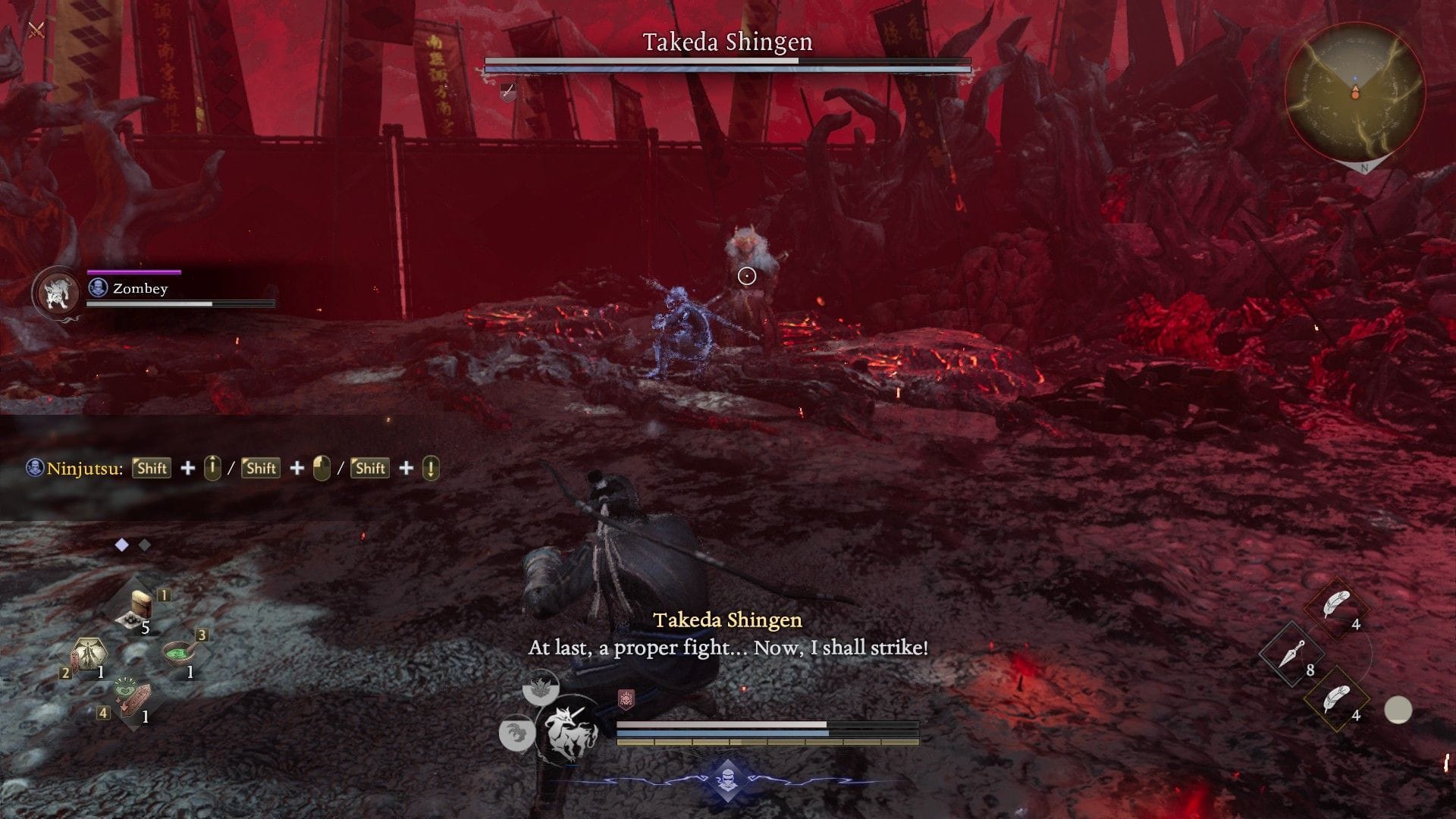
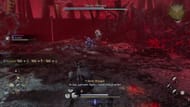
Takeda Shingen (Image via Koei Tecmo)
Defeating Takeda Shingen in Nioh 3 will unlock the following rewards:
Check out other articles:
Are you stuck on today’s Wordle? Our Wordle Solver will help you find the answer.
Edited by Supratim Sarkar
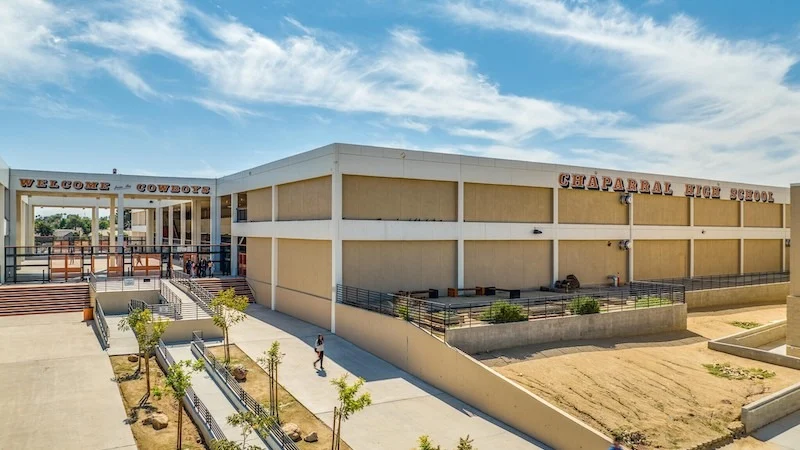
Here’s an up-to-date list of all NFL Players from Chaparral High School in Las Vegas, Nevada.
See where it ranks among other schools in the state here.


When Money Enters #motivation #mindset #selfimprovement


Wikipedia volunteers spent years cataloging AI tells. Now there’s a plugin to avoid them.


Sky News Presenter Criticises Lord Mandelson As Greedy And Duplicitous


Sinner battles Australian Open heat to enter last 16, injured Osaka pulls out


Bitcoin Drops Below $80K, But New Buyers are Entering the Market


First multi-coronavirus vaccine enters human testing, built on UW Medicine technology
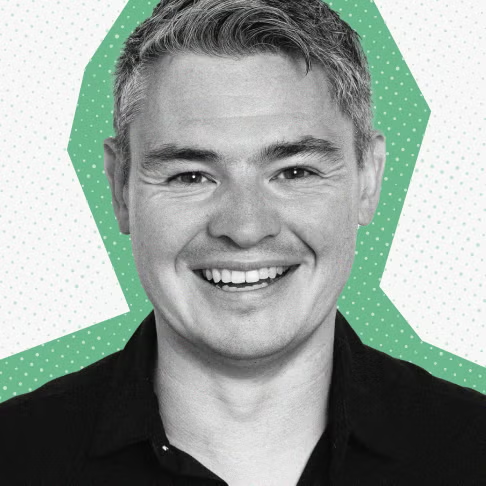

JD Vance booed as Team USA enters Winter Olympics opening ceremony


Market Analysis: GBP/USD Retreats From Highs As EUR/GBP Enters Holding Pattern
New and Huge Defender Enter Vikings’ Mock Draft Orbit


Savannah Guthrie’s mother’s blood was found on porch of home, police confirm as search enters sixth day: Live


US-brokered Russia-Ukraine talks are resuming this week


Quiz enters administration for third time


GAME to close all standalone stores in the UK after it enters administration


Shannon Birchard enters Canadian curling history with sixth Scotties title


Still time to enter Bolton News’ Best Hairdresser 2026 competition
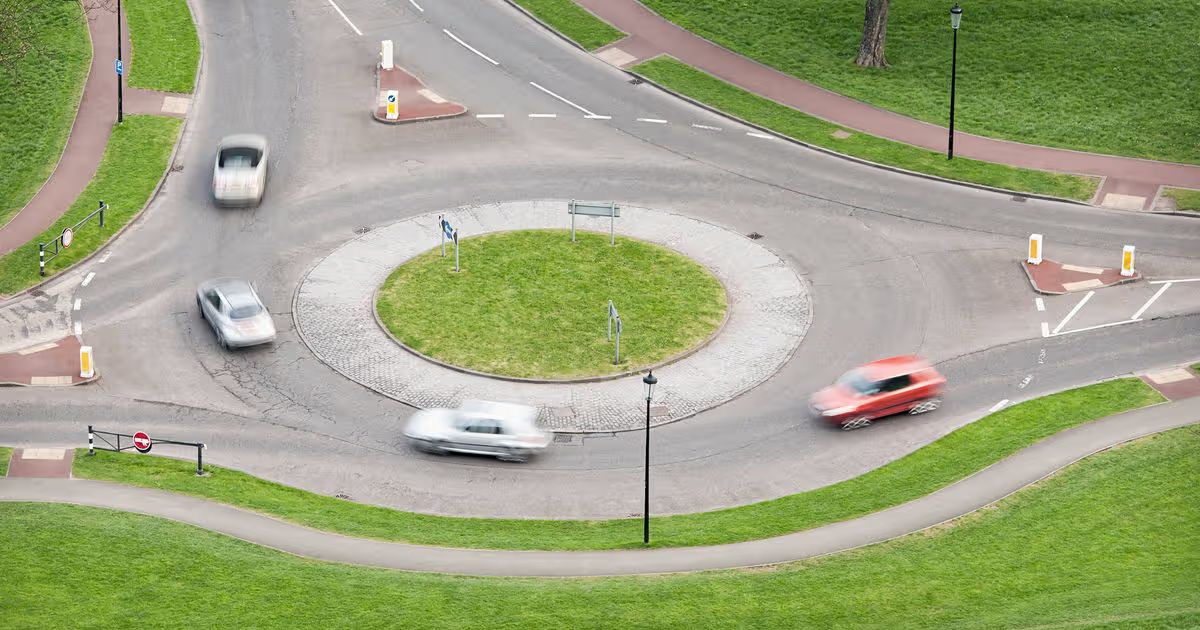
Driving instructor urges all learners to do 1 check before entering roundabout


Russia’s Largest Bitcoin Miner BitRiver Enters Bankruptcy Proceedings: Report
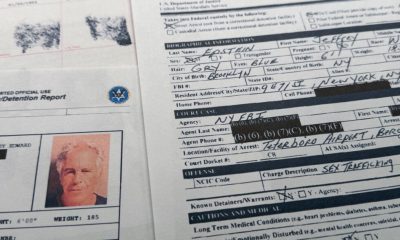

Images of Mamdani with Epstein are AI-generated. Here’s how we know


Here’s Why Bitcoin Analysts Say BTC Market Has Entered “Full Capitulation”


Why Bitcoin Analysts Say BTC Has Entered Full Capitulation